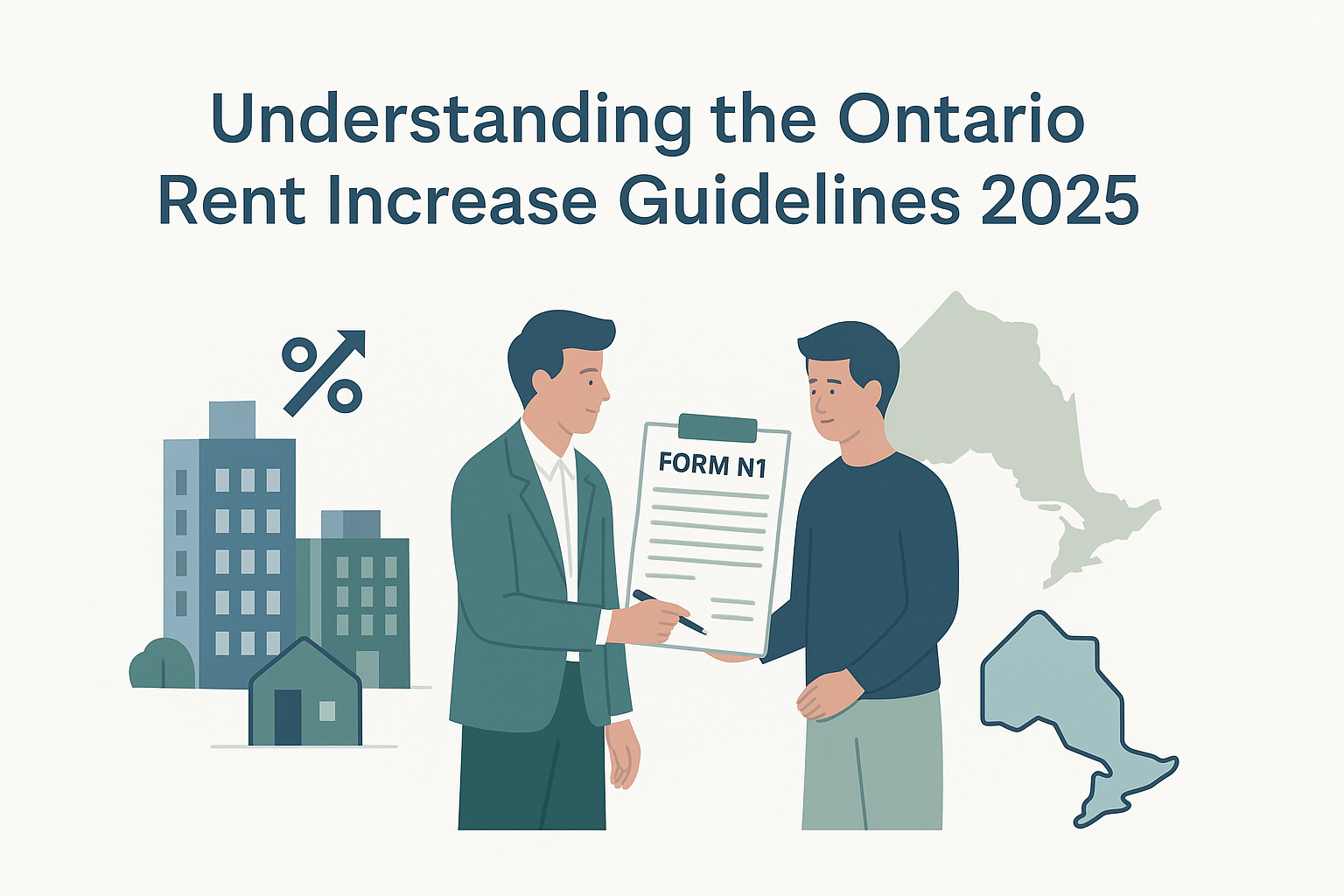


The rent increase 2025 rules are essential in 2025, as more than 1.7 million rental houses are in the province. As per Canada Mortgage and Housing Corporation (CMHC), demand in the rental market is growing, where the average vacancy rate in Ontario is 1.6%, the lowest in more than ten years. Affordability concerns are still an issue, and inflation is not dead yet, which is why both tenants and landlords are interested in knowing the Ontario rent increase 2025 rules.
Are you a renter who wants to carefully follow the possibility of a rapid escalation, or a property owner who tries to remain in line with the provincial law? This guide will probably have all you need to know, such as the Ontario rent increase form, legal rent increase Ontario 2025 limits, and rent control measures all over provinces such as BC and Alberta, among others.
The government published the 2025 rent increase guideline to ensure that Ontario tenants are not subjected to unjustified rent raises, at the same time giving flexibility to landlords to be able to meet increased maintenance and property expenses. It is capped at 2.5% (which provides the maximum rent increase Ontario limit under provincial regulation) in 2025, as it was also in 2024.
This applies only to residential rental units covered under Ontario’s Residential Tenancies Act and does not apply to:
To apply a rent increase in 2025, Ontario landlords must give proper notice and use the official Ontario rent increase form known as Form N1.
Landlords are legally obligated to follow a specific process when applying a rent increase in Ontario for 2025. Here’s what it includes:
Failing to provide the proper notice of rent increase Ontario can result in legal consequences or dismissal of the rent increase in dispute boards.
Landlords often ask: How much can a landlord increase rent in Ontario?
To determine exactly how much you can charge, use the government’s official rent increase calculator for Ontario.
If a landlord wants to go beyond this limit due to significant repairs or increased property taxes, they must apply to the Landlord and Tenant Board and justify the request.Where to Find the Best Rooms for Rent in Canada (2025)? Cities, Prices & Smart Tips
While Ontario's rules are strict, let's take a look at what’s happening across the country:
Searches for bc landlord rent increase and rent increase Alberta are growing, showing more tenants are actively tracking rent law changes in their provinces.
Being informed can help you avoid disputes and protect your rights. Here’s what to do:
Many tenants ask: how much can you increase rent in Ontario or how often can landlord increase rent in Ontario—the answer lies in both the legal guideline and whether the unit is exempt from rent control.
Here are some best practices for landlords to ensure they remain within the law when applying a rent increase for 2025 Ontario:
Being transparent and consistent ensures positive tenant relationships and compliance with the legal rent increase Ontario 2025 policy.
Many wonder if things have changed significantly from rent increase Ontario 2024:
The ontario rent increase for 2025 is consistent with previous years, indicating a stable provincial policy amidst a volatile housing market.
Understanding your rights as a tenant or your responsibilities as a landlord is key to navigating the evolving Canadian housing market. Whether you're dealing with a notice of rent increase Ontario, downloading a rent increase form Ontario, or questioning how much rent can be increased in Ontario, always rely on government guidelines and verified forms.
By staying updated on changes like the Ontario rent increase 2025, both parties can avoid conflict and keep housing relationships fair and legal.
Want to simplify rent tracking and tenant communication?
Automate your rent receipts, increase notices, and reporting effortlessly with TenantPay.
👉 Start Using TenantPay Today
The guideline is set at 2.5% for most rental units.
Landlords can increase rent by up to 2.5% for 2025 unless the unit is exempt or they apply for an above-guideline increase.
A full 90-day notice is required using Form N1.
For 2025, it’s 2.5% for rent-controlled properties.
Yes. Even if rent is increasing annually, written notice is always required.
Only once every 12 months, per the Residential Tenancies Act.
No. Landlords cannot retroactively increase rent without prior notice.
The legal limit is 2.5% unless approved otherwise.
Yes. The notice of rent increase form N1 is the only legal document accepted for rent increases in Ontario.
Only if they apply for and receive approval for an Above Guideline Increase.